Webinar on documenting human rights violations
Webinar on documenting human rights violations and monitoring companies and development financiers
By Alexander Andrade Sampaio
Earlier this year, the International Accountability Project (IAP) and the Business and Human Rights Resource Centre (BHRRC) held a webinar on using technology to monitor human rights violations and the ways in which civil society organizations can participate in this work.
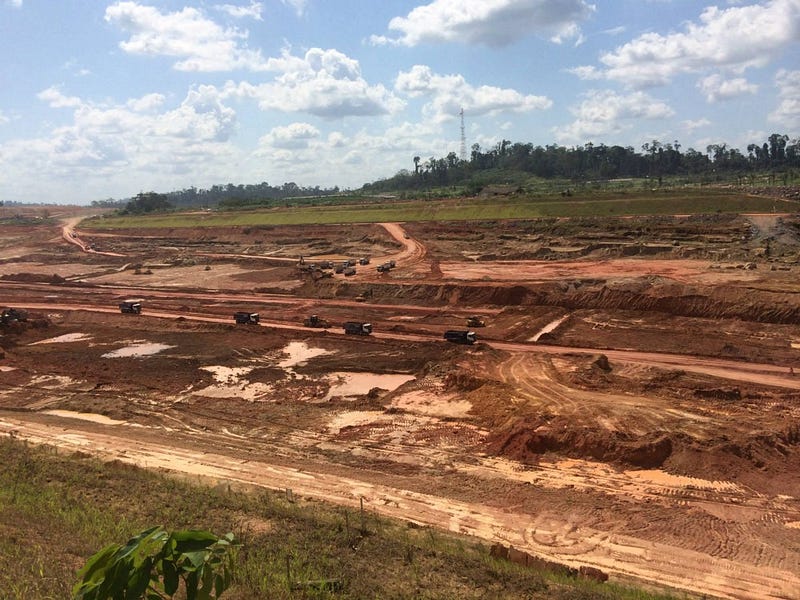
The Early Warning System monitors projects and policies of major development lenders operating around the globe, such as the World Bank and the Inter-American Bank, to inform and advise communities potentially affected by the plans of these institutions and to carry out specific thematic and project analyses.
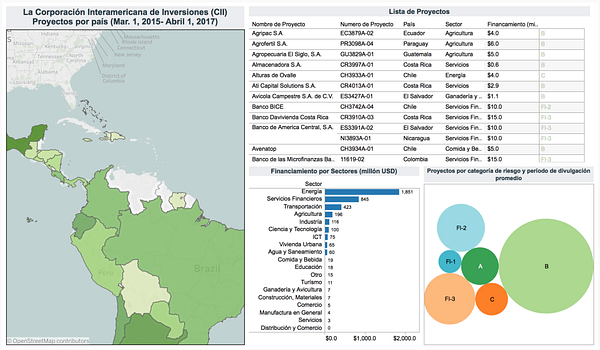
As an example, IAP discussed a recent analysis that was completed on the information disclosure practices of the private arm of the Inter-American Bank — the IDB Invest. The findings from the analysis were later incorporated into a campaign demanding that development institutions recognize the International Right to Know Day.
The Early Warning System can also be used to alert communities that may have their environmental and human rights affected by projects and policies of development banks. We briefly analyzed the work done with communities affected by the Hidroituango Dam project in Colombia, financed by the Inter-American Bank, which recently resulted in a complaint to the bank’s internal complaint mechanism. We also analyzed the work done with communities affected by the Liquefied Natural Gas project in Panama, financed by the private arm of the World Bank.
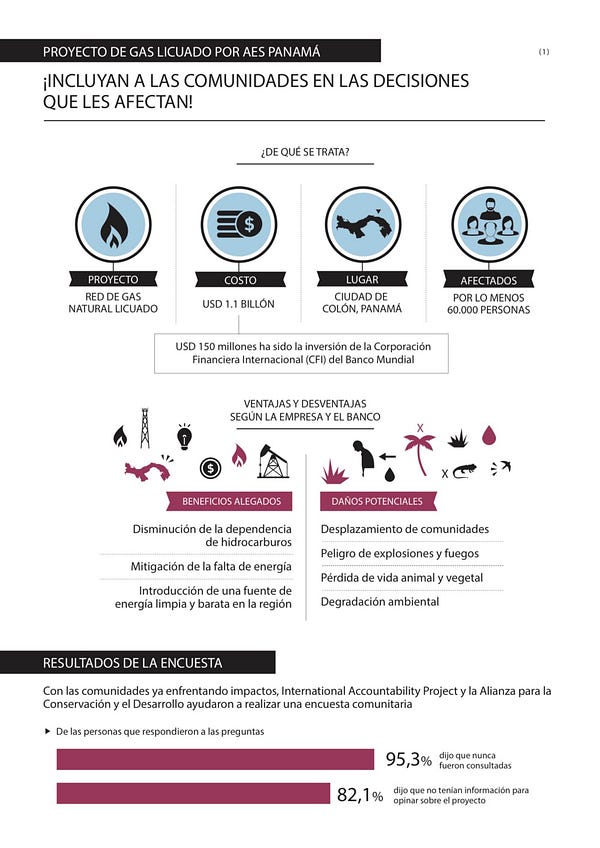
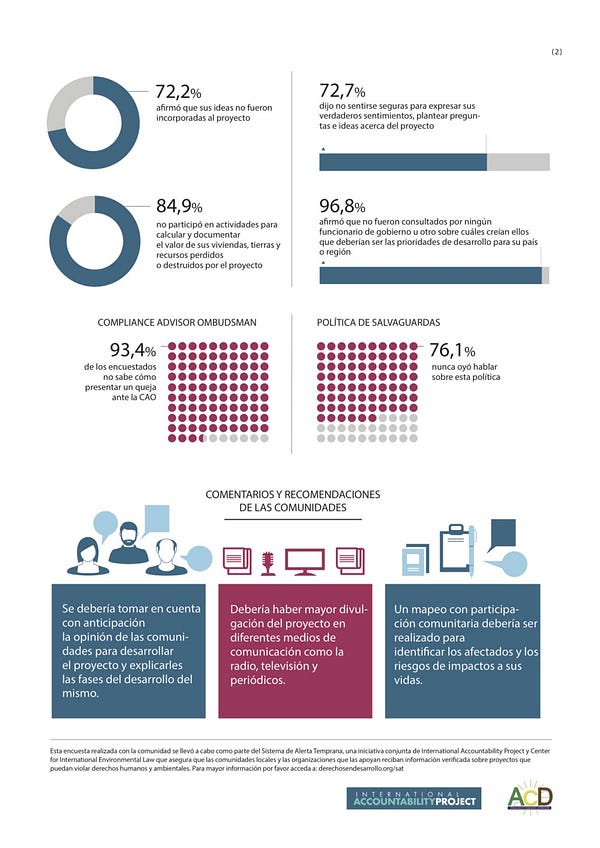
Finally, we discussed the various ways in which interested organizations can partner with the Early Warning System. Organizations can sign up to receive lists of projects that are updated regularly, as well as help in getting in touch with communities potentially affected by projects and support community campaigns.
The second half of the webinar explored the work of the Business and Human Rights Resource Center. Júlia Mello Neiva, from BHRRC, presented on the Centre’s work documenting human rights violations perpetrated by companies and explained how civil society can use this information to strengthen their strategies, campaigns or even litigation. Júlia spoke about how the Centre emerged more than 15 years ago at a time when governments were no longer the main violators of human rights. Instead, there was an urgent need to confront globalization and the growing economic and political power of transnational corporations. In such a context, it was necessary to understand the role of corporations in human rights violations and to discuss how to hold them accountable for such violations. The Centre is a catalyst for information on the subject, believing that through the dissemination and amplification of the voice of vulnerable groups, often victims of such violations could contribute to prevent violations, better inform companies and investors, governments, international agencies such as United Nations, among other actors.
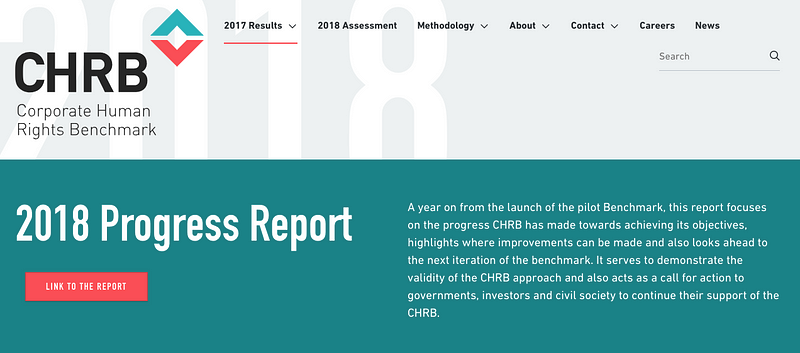
Júlia pointed out that the Centre is an independent non-profit, based in England and the United States, with representatives and researchers around the world. It is independent of any government, religion or political and economic interest. She emphasized that the Centre does not accept donations from companies, corporate foundations or top executives of corporations. The Centre follows the work of more than 7000 thousand companies in the world and has a free weekly newsletter that disseminates news and cases in several languages. To expand access to information, the Centre seeks out and disseminates corporate responses to allegations of human rights abuses and violations. These responses are published in the weekly bulletins, which have become an important reference for victims and also for companies to know what is happening in the world. It is an important tool of pressure for change.
In addition, the Centre produces corporate indexes (such as the Corporate Human Rights Benchmark and KnowtheChain, on slave labor in various production chains) in which corporate human rights policies and actions are compared and ranked. Júlia demoed the Centre’s database on companies and and mentioned the other various databases that are available. The Centre also publishes information aimed at communities and groups affected by violations, with materials and tips on how to register complaints and evidence of violations, how to monitor companies, how to influence them, etc. This information is provided in order to give voice to vulnerable groups, individuals and victims of violations, highlighting the efforts and struggles of human rights defenders, and seeking ways to hold corporations accountable for violations and to disseminate broad and globally information about such violations.
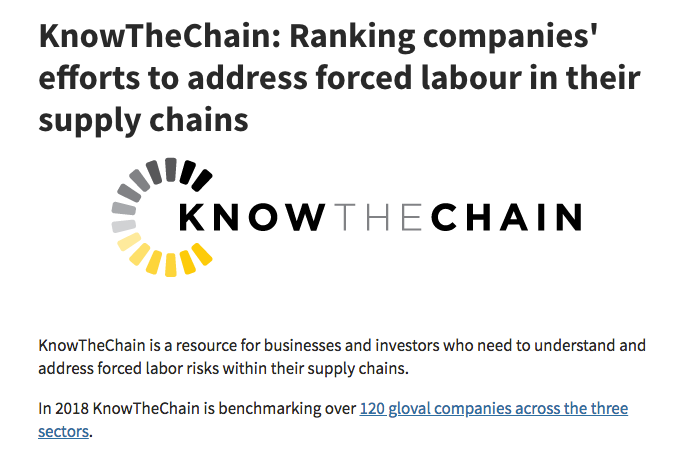
IAP and BHRRC now plan to conduct future webinars in English and Spanish to detail their work and possibilities for cooperation with organizations in the region. The recording of the Portuguese webinar is available and it is possible to use subtitles in other languages generated by the YouTube. To do this, select ‘cc’ in the lower right corner of the YouTube window, add subtitles and then select the language for auto-translation. Organizations in Latin America and the Caribbean that are interested in receiving information and partnering with IAP and BHRRC are invited to email alex (at) accountabilityproject.org(IAP) and neiva (at) business-humanrights.org (BHRRC).
